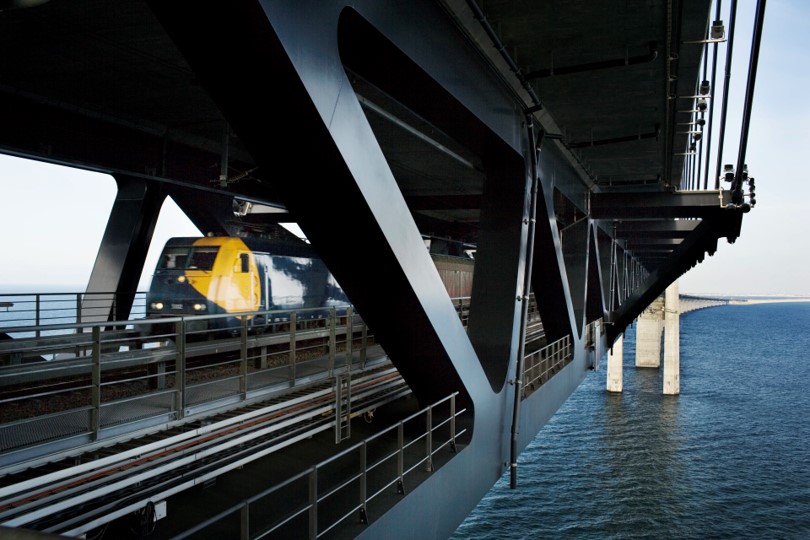 The State guarantee model granted by Denmark and Sweden for the construction of the Øresund rail-road link does not constitute new aid within the meaning of EU State aid rules, the European Commission has concluded.
The State guarantee model granted by Denmark and Sweden for the construction of the Øresund rail-road link does not constitute new aid within the meaning of EU State aid rules, the European Commission has concluded.
In October 2014, following a complaint by a ferry company, the Commission found that Denmark and Sweden’s support to the consortium owning and operating the Øresund rail-road link, Øresundsbro Konsortiet I/S, was in line with EU State aid rules.
Denmark and Sweden’s support took the form of a state guarantee on the loans taken out by the consortium to finance the link. Denmark also provided the Danish parent company of the consortium, A/S Øresund, with special tax treatment as concerns depreciation of assets and fiscal loss carry forward.
In September 2018, the General Court partially annulled the Commission’s 2014 decision on procedural grounds. The General Court found that the Commission should have opened a formal investigation to assess the state guarantee and the special tax treatment in depth before adopting its state aid decision. Following the General Court ruling, the Commission opened an in-depth investigation in February 2019.
Based on its in-depth assessment, the Commission concluded that the state guarantee implemented by Denmark and Sweden amounts to state aid. The aid was granted to support the investment into the Fixed Link which was intended to be commercially exploited. However, as the aid was granted in 1992, long before the complaint was filed and before Sweden joined the EU, the aid is deemed to be existing and therefore there is no need for the Commission to carry out a compatibility assessment.
In addition, the EC says that the special tax treatment only partly constitutes new State aid. This is because part of those special tax rules were awarded more than 10 years before the complaint was filed. In addition, even if the Danish tax rules changed several times since 1992, the rules applicable to A/S Øresund were not always more advantageous. As a result, the special tax treatment is only considered as new aid with regards to certain periods. For those periods, the measures are incompatible with State aid rules given that they were not proportional. Denmark must now recover the incompatible aid.
As a matter of principle, EU State aid rules require that incompatible State aid is recovered without delay, to remove the distortion of competition the aid creates. There are no fines under EU State aid rules, and recovery does not penalise the companies in question. It simply restores equal treatment with other companies.
Denmark will determine the amount to be recovered, in line with the methodology set out in the Commission decision adopted today. Therefore, the total aid amount to be recovered is not known, at this stage.
The Øresund fixed rail-road link is 16 kilometres long, consisting of a toll-funded bridge, an artificial island, and a tunnel for road and railway traffic from the Swedish coast to the Danish island of Amager. It connects Copenhagen, in Denmark, to Malmö, in Sweden. The Link was built between 1995 and 2000, and has been in operation since July 2000
Share on:



